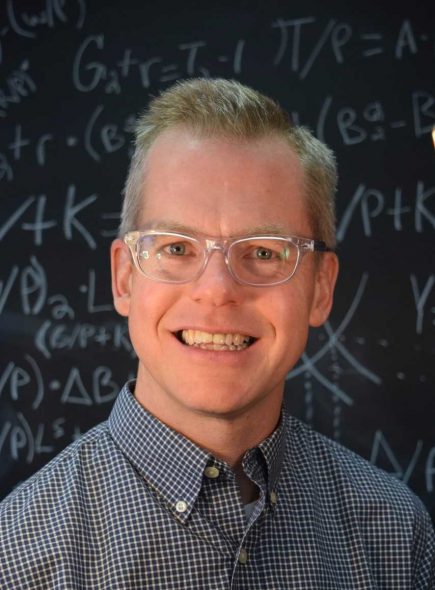How CROWE Can Help State Economy
The launching of UW-Madison Center for Research on the Wisconsin Economy is much needed.
Even though the Wisconsin unemployment rate is very low, its economic growth rate is stuck in low gear. How to improve on that long-term pattern?
Fortunately, there is a new place to go for answers.
Under the leadership of Noah Williams, a professor and researcher in the economics department at UW – Madison, the Center for Research on the Wisconsin Economy (CROWE) was launched last week. Its creation is long overdue. Wisconsin has been steadily losing share of the national economy for a half a century.
Such a center was called for in the 2010 “Be Bold – The Wisconsin Prosperity Strategy,” and now it exists. Williams and three other economists will be diving into nagging policy issues at the state level on the belief that what happens at the state level can inform policy decisions not only in Wisconsin but also in other states and at the national level. Wisconsin will be its Petri dish.
The CROWE researchers have already offered confirmations and insights that are helpful. Here are some take-home points from presentations at its grand opening last week:
- The Wisconsin economy, barring major policy changes, will see “slow and steady growth over the next two years.” Wisconsin has been growing at about 1.4%, well below the 2% national rate.
- From a post-recession low in 2010, Wisconsin has added 50,000 manufacturing jobs, up 12%. Unlike other states, Wisconsin political leaders have doubled down on manufacturing incentives, such as the removal of the corporate income tax in that sector and in agri-business. The unprecedented level of Foxconn subsidies is another striking example.
- The labor participation rate in Wisconsin, a reflection of the state’s vaunted work ethic, remains high – 67% here vs. 60% in the nation. Badgers work hard.
- Nonetheless, Wisconsin job growth had lagged the nation, which is interconnected with a slow growth in its labor force.
- The decline in manufacturing intensity in the state has been mitigated by a fall-off in adversarial work stoppages from a high of more than 400 per year in the 1950s to less than 100 by 2000. The shift from being a high wage state in the 1950s and 1960s to the lower half for wages – Georgia levels — also contributed.
- The outflow of college graduates – without the “brain drain” label – continues, though at a lower pace. The net out-migration was more than 5% in the 1980s and was 2.3% in 2016. In a very tight labor market, it remains a big deal at 10,000 per year.
The import of the CROWE launch was endorsed by the presence of two cabinet members, Rick Chandler, revenue secretary, and Scott Neitzel, administration secretary; Madison Chancellor Rebecca Blank; Sen. Peter Barca, the state’s leading Democrat, and the keynote speaker, John Taylor, one of several candidates to head the Federal Reserve Bank under President Trump.
Taylor made the case that the nation and Wisconsin could do better than the 2.1% GDP growth rate that has prevailed from late 2009 through 2016. The recovery was much faster after the recessions of the 1980s. (Of late, growth has been running north of the 3%,)
Taylor cited low growth in productivity in recent years – below 1% — as a major issue and suggested faster write-off of capital expenditures by corporations.
Taylor, a monetary economist, was thin on policy solutions at the state level, citing less regulation of professional licenses and fewer land use restrictions. Though a resident of Silicon Valley, he made no mention of the impact of entrepreneurs on economic growth.
All in all, it was a good start for CROWE. There is great promise that its economists, with help from their students, will help the state’s leaders figure out what works and what doesn’t work for more robust economic development. (For instance, do the state’s massive, long-standing real estate subsidies work?)
Finally, it’s encouraging that a center at UW—Madison, which usually operates in the cocoon of Dane County, will concern itself with pressing economic issues across the state.
John Torinus is the chairman of Serigraph Inc. and a former Milwaukee Sentinel business editor who blogs regularly at johntorinus.com
Op-Ed
-
Wisconsin Candidates Decry Money in Politics, Plan to Raise Tons of It
 Dec 15th, 2025 by Ruth Conniff
Dec 15th, 2025 by Ruth Conniff
-
Trump Left Contraceptives to Rot; Women Pay the Price
 Dec 8th, 2025 by Dr. Shefaali Sharma
Dec 8th, 2025 by Dr. Shefaali Sharma
-
Why the Common Council’s Amended Budget is Good Policy for Milwaukee
 Nov 20th, 2025 by Alds. Marina Dimitrijevic and Russell W. Stamper, II
Nov 20th, 2025 by Alds. Marina Dimitrijevic and Russell W. Stamper, II






















Ah, yes, the Noah williams that abuses the title of “professor” for pure partisan political hackery. No surprise that Tornius supports it, Walker probably paid him to make sure of it.
Back and Forth with an actual economist:
http://archive.jsonline.com/news/opinion/wisconsin-economy-outpacing-other-states-b99493700z1-302688511.html/
http://archive.jsonline.com/news/opinion/a-response-to-marc-v-levine-b99500583z1-303784991.html/
http://archive.jsonline.com/news/opinion/here-are-the-facts-on-wisconsins-economy-b99498072z1-303345311.html/
http://archive.jsonline.com/news/opinion/and-a-rejoinder-to-noah-williams-b99500587z1-303785031.html/
On the M&A credit:
http://host.madison.com/wsj/opinion/column/noah-williams-manufacturing-tax-break-has-been-good-for-jobs/article_00ec465f-4424-56a7-991a-93ff54657089.html
http://urbanmilwaukee.com/2017/05/10/data-wonk-does-tax-credit-make-state-a-winner/
http://urbanmilwaukee.com/pressrelease/records-reveal-uw-madison-professor-defending-scott-walkers-failed-tax-policies-sought-role-with-scott-walkers-presidential-campaign/
There’s plenty more…I’ll quit here.
http://jakehasablog.blogspot.com/2017/05/how-milwaukees-bradley-foundation.html
On FoxCon (yes, that’s right, spelled it with only one ‘n’):
http://urbanmilwaukee.com/2017/08/23/murphys-law-newspaper-peddles-bogus-foxconn-report/